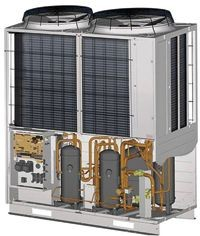An MEP engineer is a specialist who designs, plans, and oversees the installation of three critical building systems: Mechanical, Electrical, and Plumbing (MEP). Their expertise ensures these systems function efficiently and create a comfortable, safe, and sustainable environment within a building.
Here’s a closer look at the MEP engineer’s role in each of these systems:
-
Mechanical (HVAC):
- Designs heating, ventilation, and air conditioning (HVAC) systems.
- Considers factors like building size, occupancy, and climate to ensure proper temperature control and air quality.
- Selects and specifies HVAC equipment like boilers, chillers, air handlers, and ductwork.
-
Electrical:
- Designs the electrical layout of the building, including power distribution, lighting systems, communication systems, and safety features.
- Ensures the electrical system meets safety standards, provides adequate power for the building’s needs, and complies with relevant building codes.
- Specifies electrical components like transformers, switchgear, panels, lighting fixtures, and data cabling.
-
Plumbing:
- Designs and plans the water supply, drainage, sanitary, and waste disposal systems.
- Ensures these systems are functional, efficient, and meet all plumbing codes and regulations.
- Specifies plumbing fixtures, piping materials, and wastewater treatment systems (if applicable).
Beyond design, MEP engineers also handle these crucial tasks:
- Project planning: Collaborates with architects, builders, and other stakeholders to understand project requirements and develop a plan for the MEP systems.
- Cost estimation: Provides estimates for materials, equipment, and installation of the MEP systems.
- Construction oversight: Works alongside contractors during construction to ensure the MEP systems are installed according to the design plans. They may also conduct inspections and address any issues that arise.
- Project management: Manages the MEP aspects of the project, ensuring they are completed on time and within budget.
Why are MEP engineers important?
MEP engineers play a vital role in the construction industry. Their expertise contributes to several key aspects of a building:
- Energy Efficiency: They design systems that minimize energy consumption and operating costs while maintaining comfort levels.
- Indoor Air Quality: They ensure proper ventilation and air filtration, leading to a healthy and productive environment for occupants.
- Building Sustainability: They incorporate sustainable practices like using water-saving fixtures and energy-efficient equipment, reducing the environmental impact of the building.
- Safety: They ensure electrical and plumbing systems comply with safety codes, minimizing the risk of accidents.
- Overall Building Functionality: A well-designed MEP system is essential for the smooth operation of a building.
By involving a qualified MEP consultant from the early stages of a construction project, you can benefit from their expertise in optimizing designs for efficiency, avoiding costly mistakes during construction, and creating a functional and comfortable building.



2 thoughts on “What does a MEP engineer do?”